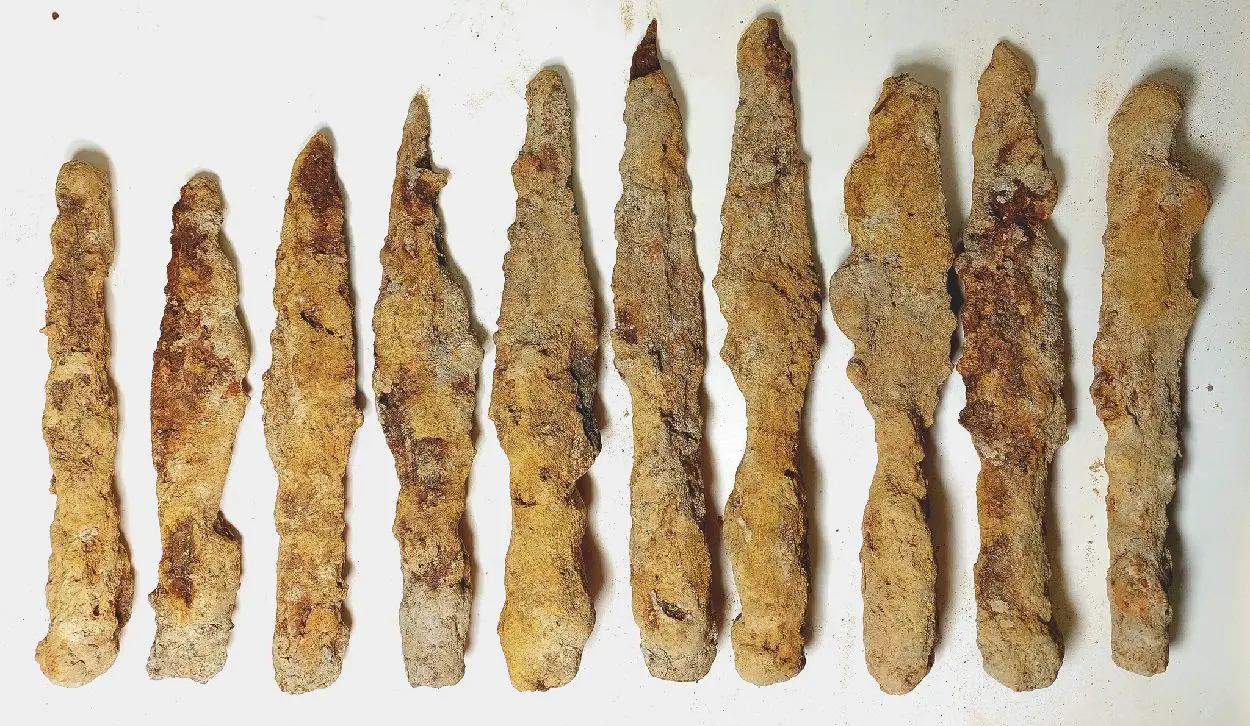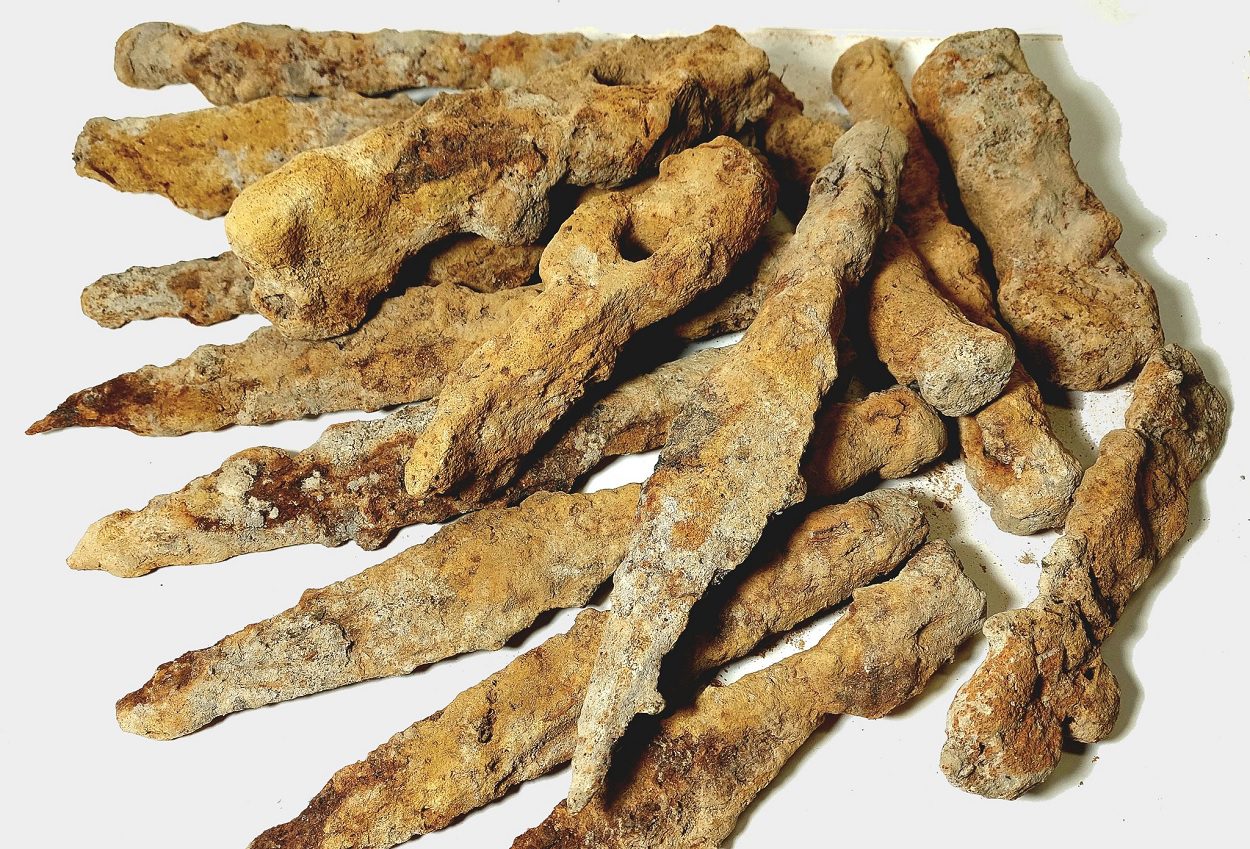The Lublin Provincial Monuments Conservator has announced the discovery of an assemblage of “Barbarian” weaponry in the State Forests in the Hrubieszów region of Poland.
According to the announcement, the assemblage dates to the Roman period and may be associated with the Przeworsk culture, an Iron Age people that emerged in the upper Oder and Vistula basins during the 3rd century BC, and continued to inhabit central and southern Poland until the 5th century AD.
The culture’s decline in the late 5th century coincides with the invasion of the Huns and the social crisis that occurred as a result of the collapse of the Roman world.
Most of the metal objects are made from corroded iron and were found at one discovery site in a shallow context. Archaeologists have so far identified two iron battle axes, two iron chisels, a dozen iron spear heads, and one blade axe likely used in carpentry.

“The number of artefacts, their nature, method of deposit, and state of their preservation, exclude the possibility of a cemetery or a single burial, as no bones or fragments of pottery were found to indicate a grave pit”, said the Lublin Provincial Monuments Conservator on social media.
“We are most likely dealing with weapons used by barbaric tribes during the Roman period”, also noting that previous excavations in the vicinity have uncovered a Przeworsk warrior burial at Horodło.
Alternative hypotheses propose a potential connection of the assemblage with Gothic cultures or the Vandals. However, without a thorough investigation, the precise nature of the discovery and its chronological and cultural affiliation remains speculative at present.
Archaeologists plan to return to the discovery site in Spring to conduct a thorough archaeological inspection.
Header Image Credit : Lubelski Wojewódzki Konserwator Zabytków





